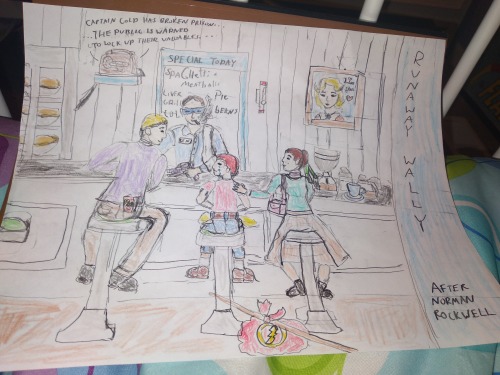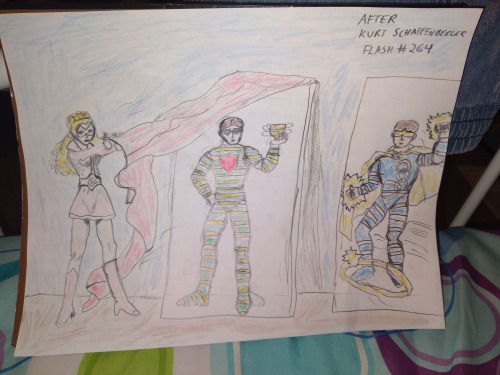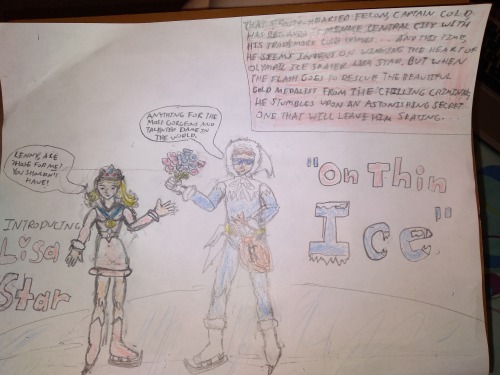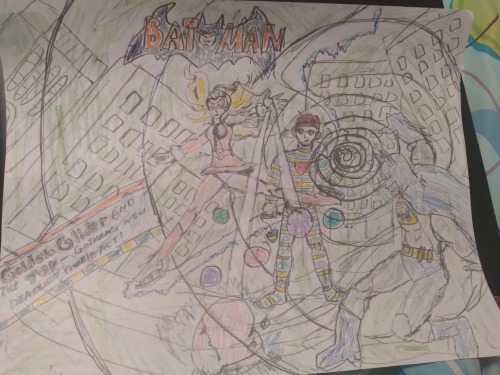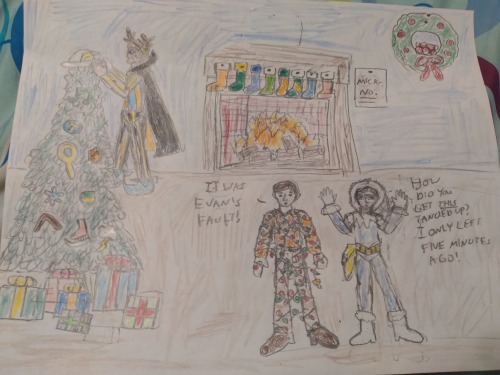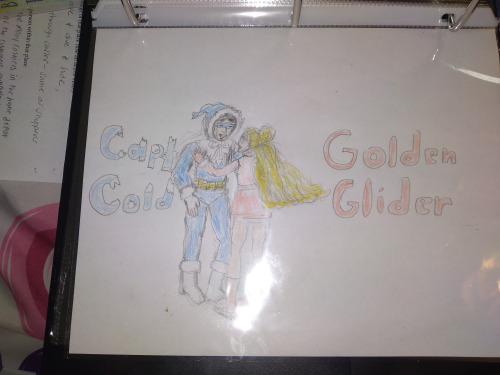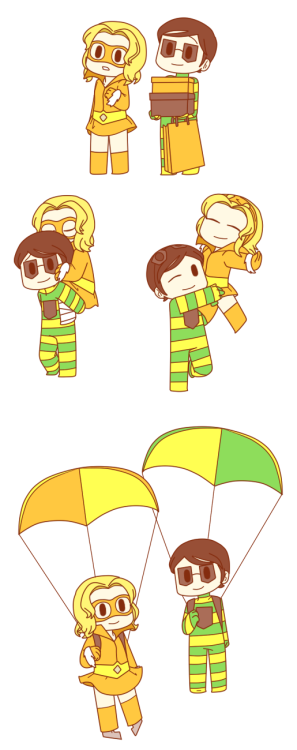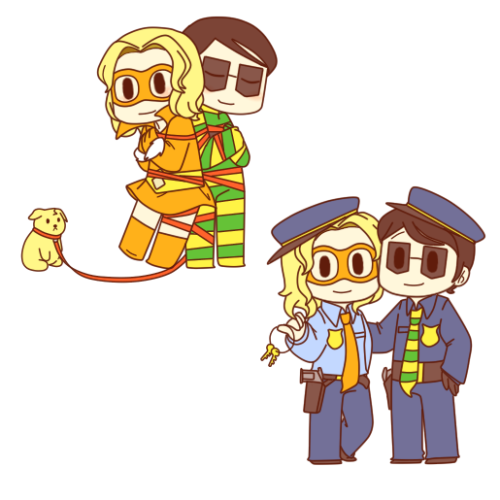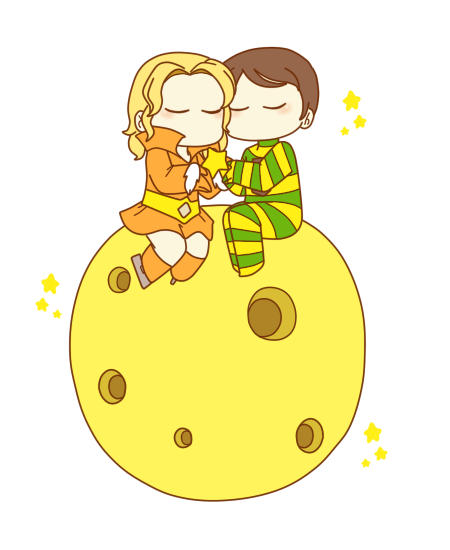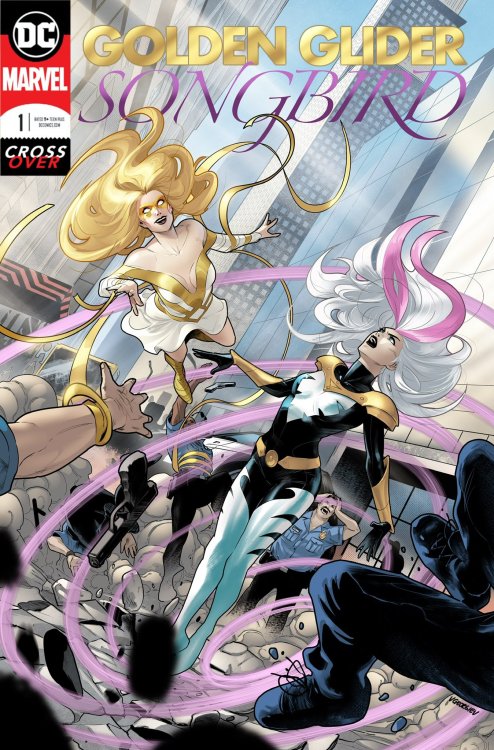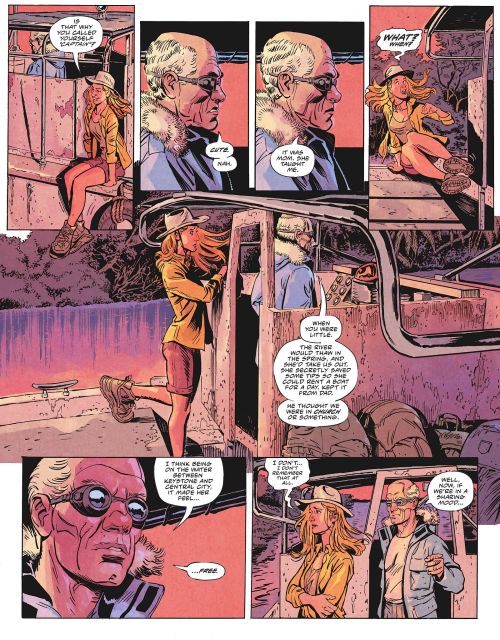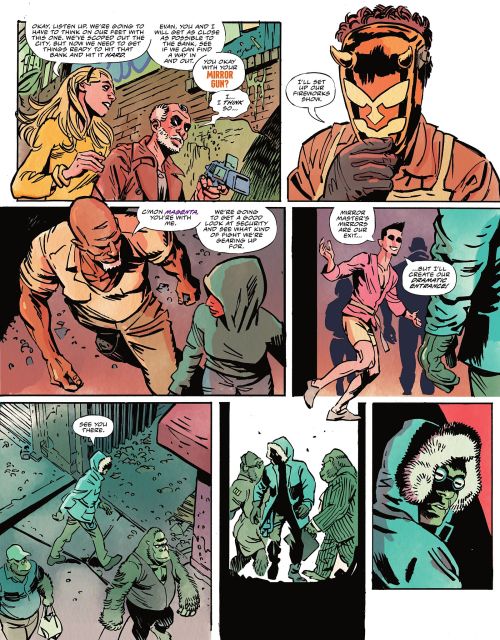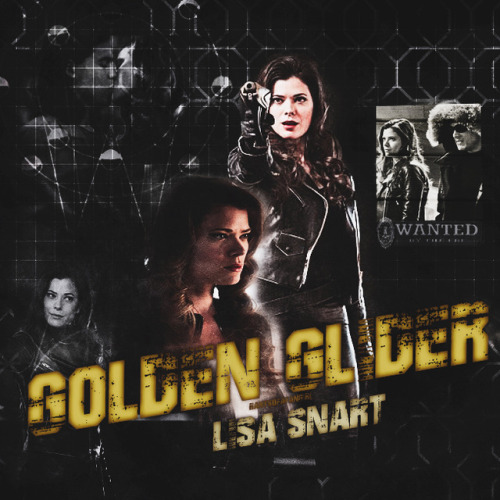#golden glider
Pets:
- When Mark Mardon was a kid, his brother, Clyde, had a dog named Thunder. In most families, the dog would have belonged to both children, but Mark’s parents made it pretty clear that the dog only belonged to their golden child.
- Mick Rory’s family owned three cows, two Clydesdale horses, a donkey, a mule, two dogs (Spot and Rover), four cats (Fluffy, Stripey, Mouser, and Mr. Tuxedo), nine sheep, six goats, six to ten pigs (at any given time) and many, many chickens, ducks, and turkeys. They also raised bees.
- Digger didn’t have any pets growing up, but his family did raise a LOT of sheep. His legal father (Ian Harkness) also had a dog named Fang, who liked Digger about as much as Ian did. Digger speculates that Fang was at least part dingo.
- Roscoe Dillon’s mother, Rosa, owned a Persian named Priscilla (an anniversary gift from her wealthy husband). Unfortunately for Rosa, Priscilla was even less fond of being hugged than Roscoe was. Roscoe, by contrast, got along splendidly with the cat. Both hated crowds, loud noises, and being touched. Roscoe remembers Priscilla fondly as his most understanding family member.
- Neither Sam nor Evan had any pets as kids. Sam’s apartment didn’t allow pets; Miss McCulloch would’ve loved for her kids to be able to have pets but didn’t have enough room for them in the orphanage.
- Hartley’s parents owned a number of thoroughbred horses, several show dogs and show cats, and a wall-sized aquarium full of exotic fish. Most of these were more for show than anything else; Hartley wasn’t supposed to touch any of them without explicit permission. On the one and only occasion a rat made it inside the Rathaway estate, he befriended it…only for his mother to promptly have it killed when she discovered it. Now, of course, Hartley is the proud owner of at least six rats.
- James Jesse didn’t exactly have pets growing up…but since he got to spend time with lions, tigers, elephants, camels, bears, monkeys, and horses in the circus, he didn’t really care all that much. Putting your head in a lion’s mouth is cooler than having a puppy any day.
- Leonard and Lisa Snart once made the mistake of bringing home a kitten from a neighbor. Lisa named it Gabriela and was thrilled with her new pet….but when Larry Snart came home and saw the kitten, he promptly drowned it in front of his children. A few years later, Larry brought home a pit bull puppy…and predictably abused it until it was the nightmarish guard dog he wanted. The dog didn’t have a proper name (Larry just called it “you mutt”), but the neighborhood nicknamed it the Hellhound. It lived for a few years before Larry tripped over it whilst drunk and killed it in a rage (although not before the dog did a number on him). This dog is also the reason that both Leonard and Lisa are scared of large dogs.
- Barry Allen owned a cat named Fluffernutter and a dog named Streak the Wonder Dog (after Green Lantern Alan Scott’s dog).
School headcanons:
- Mark and Clyde Mardon both ended up being placed into a Spanish I class in their Freshman year of high school (one of Clyde’s classes was cancelled abruptly shortly before the start of the school year, and Mark hadn’t been able to decide what electives he wanted to take). This was the only high school course Mark ever earned an A in, mainly because, unbeknownst to the school, both he and Clyde were bilingual and could speak Spanish better than their Spanish teacher. The only downside was that both of them spent a lot of time being bored out of their minds.
- The one and only time Barry Allen got detention was due entirely to the fact that he got a tardy slip every day for three months. Once the school caught on to the fact that Barry never missed out on any work, they eventually stopped giving him tardy slips at all, instead simply accepting that Barry being late to everything was a fact of nature.
- Wally West once got detention for using his super speed to leave the school grounds in order to get Indian food…from India.
- Leonard Snart never once passed a course (he slept through or outright skipped almost every class), but he was never held back a year. This was because most of the faculty wrote him off as a lost cause by the time he was seven years old. This is why Len can barely read and write and knows almost nothing about literature or history. That being said, Len doesn’t have any particular animosity towards the school system. It did give him and his sister free food, after all. (This free food also resulted in Len having a nearly perfect attendance record before he dropped out. He might not have learned anything, but he wasn’t going to miss out on lunch.)
- If Sam Scudder had gone to a better school, he probably would’ve been put in either a gifted program of some sort or have been skipped a few grades ahead; he is and always has been extremely intelligent. As it was, he went through all of school (until he dropped out) believing that he was just reasonably clever and kind of a nerd; he still doesn’t really realize how intelligent he actually is.
- Roscoe was likewise very intelligent, although the fact that he was on the autism spectrum before it was widely recognized meant that he often got himself into trouble at school. When he had teachers who liked him and were understanding of his quirks, he did very well in school, but most of his teachers were demanding and critical. As a result, he didn’t always perform as well as he would have been able to under optimal conditions. Also not helping matters was the fact that his father would denigrate his son for any grade less than an A (no matter the context). He still did well enough to graduate high school with a strong GPA and be accepted into college, but it wasn’t until college that he ever felt comfortable in school. He graduated college (a year early, due to his desire to please his father) with a B.S. in engineering…only for his father to criticize him for not having a high enough college GPA, for not graduating at the top of his class, and for having changed his major from business school (which he had hated) to engineering. Shortly afterwards, Roscoe fell into a particularly bad manic episode, which in turn was a major influence in his decision to become the Top.
Barry and Iris meet up with their nephew, Wally, who ran away from his cruddy home life in the hopes of being able to live with them.
Also, Captain Cold has escaped from prison and is pretending to be the waiter for this diner.
Based on this Norman Rockwell painting:

Len ended up behind the counter because I couldn’t decide who I wanted behind the counter and the guy in the original painting kinda looks like him.
Post link
Ta-daa! Roscoe!
The guy on the far right is Ringmaster (real name Beau Baer); Golden Glider hypnotized him into working for her as part of her revenge scheme against Barry and Iris.
I have no idea where Golden Glider got these two life-sized portraits from, or how she got them into her hideout, but it did make for a cool image that was fun to draw.
Post link
If the Golden Glider had debuted in the Silver Age (and/or an untold Silver Age story from the time before Lisa became the Golden Glider).
The story would play off of Silver Age Captain Cold’s habit of romancing various pretty women. When Lisa “Star” arrived in Central City to perform with her professional skating company, she would disappear not long after Captain Cold escaped from prison. The Flash (Barry) would naturally assume that Captain Cold had fallen in love with her and had kidnapped her. In reality, of course, Captain Cold is Lisa’s brother. He had broken out of prison to secretly send her some gifts and ended up having to rescue her from a different group of criminals, who had actually done the kidnapping.
Once Cold saved his sister, the two siblings would go to Cold’s latest hideout, Cold would give his sister his gifts…and then the Flash would show up. (Lisa might or might not know about her brother’s career as Captain Cold at this point. If she doesn’t already know, this story would have her find out.) When Flash announces that he’s there to rescue her, Lisa would ask Flash why she would need to be rescued from “Lenny”. After all, they love each other. Flash, still under the impression that she’s Cold’s latest crush, would be surprised and ask her what on Earth she sees in him, at which point Lisa would reply that it would be strange if she didn’t love her own brother–especially after he rescued her from the thugs who kidnapped her. After doing some super-speed research, Barry discovers that she’s telling the truth about Cold being her brother and about him rescuing her from the actual kidnappers. However, Captain Cold is still a wanted man, so Barry has to take him back to prison. He’s expecting a fight, but, much to his surprise, Cold actually surrenders…but makes it clear that he’s only doing so because he doesn’t want his sister to get hurt. He also asks Barry to keep Lisa’s relationship with him a secret in order to protect her career, which Barry agrees to do. Barry takes both Cold and the kidnappers to jail and he and Iris have a cute couple moment. The issue ends in Lisa’s apartment…with the reveal that Lisa is on a date with the Top!
Post link
I asked my criminology professor if I could do my final exam (a paper analyzing a movie or TV show through the lense of a particular theory of criminology) on the 2014 Flash episode “Family of Rogues”. Much to my surprise and pleasure, she said yes. So, if anyone’s interested, here is my almost 8-page college essay on Captain Cold and Golden Glider.
The Flash, based on the comic book of the same name, is a live-action television program that follows the adventures of Barry Allen, a forensics scientist who gets struck by lightning and gains superhuman speed. It started airing in 2014, and, due to the fact that its protagonist is not only a superhero but also a member of the police, focuses extensively on crime of all stripes, from fairly realistic shootings and thefts to acts of superpowered terrorism to the main character’s own vigilante activities. However, of all the characters on the show, perhaps the most interesting from the perspective of criminology are Leonard and Lisa Snart (alias Captain Cold and the Golden Glider), a brother-sister pair of professional criminals who use fantastic weapons to carry out their crimes. While they appear in a number of different episodes in the show’s first two seasons, the one that provides us with the most information about why they act the way that they do is the third episode of the second season. Entitled “Family of Rogues”, this episode, more than perhaps any other in the series, examines why certain people choose to enter into crime.
“Family of Rogues” contains four plotlines that interweave throughout the episode, none of which are directly connected to one another. Of these plotlines, three of the four feature no criminal behavior in the present day, and thus can be ignored for the purposes of this paper. All of the present crimes occur in the final and main plot, which focus on Captain Cold, his sister, the Golden Glider, and their father, Lewis Snart. The plot kicks off when the Golden Glider comes to the Flash and his allies (Cisco Ramon and Caitlin Snow), claiming that her brother has been kidnapped. They are skeptical of her claims, since both she and her brother are career criminals, and become even more skeptical when the Flash tracks down Captain Cold and finds him working alongside their father to steal some blueprints, seemingly of his own free will. Also not helping matters much is the fact that Golden Glider admitted that her brother disappeared whilst the two of them and their frequent partner, serial arsonist Mick Rory (alias Heat Wave) were in the middle of an attempted robbery when she was knocked out and he disappeared. However, when Golden Glider is informed that her brother is working with their father (another known career criminal), she becomes alarmed, insisting that her father is “a bad guy” whom her brother would never work with. When Flash and his partners display skepticism, she pulls her shirt down far enough to reveal a large scar near her collarbone, which she got when her father hit her with a bottle at the age of eight. Evidently, the elder Snart was abusive to both of his children. This is enough to convince the Flash that something might be wrong. He seeks out Cold a second time, with similarly unsuccessful results. Cold is unhelpful, providing little information as to why he’s working with his father and telling the Flash “not to save people who don’t want to be saved”. A few scenes later, Cold, his father, and his father’s lockpick are making plans to steal a well-guarded collection of diamonds when the lockpick, who has already mentioned that he doesn’t know if he’ll be able to break through the high-security lock, insults Captain Cold. Lewis, insistent that only he can speak harshly to his son, promptly murders the man by using a detonator to blow his head off, much to Captain Cold’s obvious horror. The next day, the man’s corpse is discovered by the Flash in his role as Barry Allen, forensic scientist. Since the dead man is a known associate of Lewis Snart, and he seems to have had his head blown off by a thermite bomb that was injected into his neck, Barry comes to the conclusion that Lewis Snart put a bomb in his own daughter’s neck in order to coerce his son into helping to steal the diamonds. While Cisco Ramon and Caitlin Snow, Barry’s allies, work to remove the bomb from the Golden Glider’s neck, Barry again meets up with Captain Cold, tells him he knows how Lewis is keeping him in line, and poses as a criminal named “Sam”, who is an expert at cracking locks, so that he can accompany Cold and Lewis on the crime and prevent Lewis from stealing the diamonds or killing the Golden Glider. After disguising themselves as janitors and bluffing their way past security, Barry uses his super speed to remove the guards from the scene to prevent Lewis from murdering them, and then breaks the code on the lock to the vault. Once this is done, Lewis Snart promptly shoots him. While Barry is able to use his speed to catch the bullet, he plays dead in order to be able to change into the Flash. Captain Cold uses his specialized gun to freeze the laser grid, and Lewis Snart unlocks the vault and starts stealing the diamonds, only for the Flash to arrive on the scene. Lewis immediately orders Cold to kill the Flash, threatening to murder his sister if he doesn’t, but Flash and Cold manage to delay just long enough for the bomb to be removed from the Golden Glider’s neck. As soon as he hears that Lisa is safe, Captain Cold fires his gun straight into his father’s chest, killing him in revenge for the years of abuse his sister suffered at his hands. Notably, he offers no resistance when the Flash takes him to prison, and Barry later visits Cold in prison to tell him that he believes that there is still good in him. After all, if there wasn’t, he wouldn’t have gone to such lengths to protect his sister.
The episode Family of Rogues, and, more specifically, the behavior of Leonard and Lisa Snart, is perhaps best looked at from the perspective of differential association theory. Differential association theory suggests that people who commit deviant acts are influenced to do so by primary groups and intimate social contacts, such as family members, neighbors, and close friends. It was proposed and developed by Edwin Sutherland in the late 1930s and early 1940s, and stresses the impact that other people have on an individual’s view of deviant behavior and the law. Individuals learn deviant behavior in the same way they learn non-deviant behavior: they watch it being modeled by their close friends and family members, and eventually come to imitate it. While people do not become delinquent solely by associating with a criminal, when an individual is exposed to a greater number of people who act as though obeying the law is unnecessary or irrelevant than to people who act as though the legal system is important and just, they are more likely to engage in deviant behavior. If an individual grows up around people who teach them that crime is natural or desirable in some way, such as by telling them that victims of assault “got what they deserved” or that people who leave their property unguarded deserve to have their property stolen, they may internalize these views and be more likely to engage in deviant behavior. The theory also states that a person’s ratio of favorable to unfavorable opinions about the law can change over time as a result of an individual’s changing circumstances. As a result, if a formerly deviant individual finds themselves surrounded by people whose views of the law are generally favorable, their own views on the law and deviant behavior are likely to change, and the individual will often become more law-abiding. (Holland, 2021)
Throughout the episode, the main characters go out of their way to discuss the ways in which Leonard and Lisa Snart adopted the deviant tendencies they saw modeled in the behavior of their father. As a career criminal who was convicted of a number of violent crimes, there seems to be little doubt that Leonard and Lisa would have been exposed to deviant behavior, from both their father and his criminal associates, from a very young age. While both siblings seem to view their father as a monster, with Lisa pointedly describing him as “a bad guy” and Leonard displaying obvious distaste for his willingness to rely on violence and murder rather than on methodical planning, it also seems clear that their deviant behavior stems in large part from having no other real role models. Lisa claims that her brother “practically raised her”, and that, if he hadn’t been there, that she would’ve turned out even worse than she did, something that seems to acknowledge the role her father played in the siblings’ decisions to turn to crime at all, and Barry similarly notes in a conversation with Joe West that he believes that Leonard’s criminal behavior is in large part a direct result of growing up with Lewis Snart as a father. Even if both siblings hate their father for his abusive treatment of them, Lewis Snart still served as their most important role model during their formative years, and it seems probable that his deviant behavior, as well as the apparent lack of punishment he received for abusing them, played a huge role in shaping the way that they view crime. Ironically enough, it was through Lewis Snart’s example that his son was put in the position to murder him. By setting the example that it is normal to harm one’s family members to achieve your own goals, Lewis Snart sowed the seeds for his own demise.
However, it isn’t just the siblings’ relationship with their father that reinforces their deviant behavior. While this is indeed a major factor, especially in the particular crimes that Leonard is shown commiting in this episode, their relationship with one another also seems to reinforce their criminal behavior. While the two siblings do genuinely love one another, the criminal behavior of each reinforces the criminal behavior of the other. Since they are far closer to one another than they are to anyone else, this means that both look primarily to another criminal when evaluating their deviant behavior. As a result, their already unfavorable opinions about the law are constantly being reinforced by the person to whom they have the strongest emotional ties, and they are both more likely to continue to pursue deviant behavior. For example, the two worked together during the attempted robbery where Leonard was kidnapped, and each sibling no doubt was supporting the other’s decision to go forward with the crime. Furthermore, with the exception of Flash and his team, the only characters the siblings are ever shown interacting with are criminals, such as their partner Mick Rory, who naturally would provide yet more reinforcement for their beliefs about deviant behavior. In other words, their social milieu is uniquely designed to not only accept but encourage criminal activity.
It is also worth noting that both Snart siblings display less deviant behavior when they spend time with the broadly law-abiding Flash and his team. Lisa, who spends the entire episode in the company of Flash, Cisco Ramon, and Caitlin Snow, actually commits no deviant acts over the course of the episode itself, something that is a stark contrast to the way that she behaved when she was with her brother and Mick Rory. Far from seeking out further opportunities for deviance, she actually seems noticeably ashamed of her previous criminal activity (“How could I get any worse?”) and, even when under extreme stress, manages to remain remarkably polite and friendly towards Cisco and Caitlin. In other words, when she is surrounded by people who are generally law-abiding, her own propensity towards deviant behavior decreases substantially, and, by the end of the episode, she seems to have decided to abandon a life of crime entirely, as she never troubles the Flash or his allies again. Similarly, once Captain Cold becomes convinced that the Flash really does want to help him, he becomes increasingly less hostile and dangerous towards everyone except his father. Furthermore, after he kills his father, he willingly lets the Flash arrest him and take him to prison, whereas in previous episodes he had fought tooth and nail to avoid being captured. When faced with a law-abiding man who actually cares about the well-being of himself and his sister, Captain Cold becomes more willing to question the basis for his own deviant behavior.
I would argue that differential association theory is the best way to explain the behavior of Leonard and Lisa Snart in this episode primarily because the episode focuses so heavily on the themes of family and relationships. Not only is the role Lewis Snart played in the lives of his children heavily emphasized, but the differences in the way the Snart siblings behave when they work with the largely law-abiding Team Flash and when they work together as criminals are palpable, and reflects the theory’s argument that people’s attitudes towards deviant behavior can change based upon the people with whom they interact. A number of research studies exist that support the idea that frequent association with deviant peers can affect an individual’s likelihood of engaging in delinquent behavior. Tittle, Burke, and Jackson tested their model of differential association with data from people aged 15 and older living in the United States and found that associating with criminals fostered motives for certain crimes, which in turn increased a willingness to consider offending at some future date (McCarthy, 1996), a 1996 study by Eliott and Menard concluded that associations with delinquent peers usually precede delinquent behavior, and a 1994 study by Smith and Brame concluded that delinquent peer associations increase the likelihood of an individual continuing to commit delinquent acts (Holland, 2021). Conversely, studies of the Danish halfway house Skejby, where prisoners and non-offenders live together in the hopes that the non-offenders will instill non-criminal norms in the prisoners, reveal that the recidivism rates for offenders who live here is 21.1% lower than that of prisoners who were sent to halfway houses that did not use this model (Minke, 2011). In other words, the presentation of criminal activity in the episode lines up quite well with the way that researchers have evaluated similar behavior in the real world. Furthermore, the fact that Leonard, who broadly seems to have a longer criminal record and more criminal associates than his sister, is more resistant to abandoning deviant behavior than his sister, something that would also make sense when one considers that his greater involvement in criminal behavior would provide him with more peers who would reinforce his deviant activities.
However, differential association theory does have limitations, one of which is that it does not adequately explain crimes of passion (e.g., the husband or wife who murders their spouse after discovering them with a lover). Because crimes of passion are usually done in the heat of the moment, the lessons about crime that a person has learned from their associates are unlikely to be a major factor in their decision to commit the crime. Since these are usually acts of violence committed in moments of extreme anger, jealousy, and/or fear, they are not generally affected by one’s attitude towards crime as a whole. I would argue that this does serve as a problem for this particular analysis; albeit not a major one. The last crime of the episode, Captain Cold’s murder of his father, is in effect a crime of passion. While he’s clearly hated his father for a long time, there’s nothing in the episode that suggests that he was actively plotting the man’s death from the start; the killing instead seems to be motivated predominantly by the fact that his father had threatened his beloved sister with imminent death only seconds before. Many people, even those with no particular criminal tendencies, would be at least tempted to kill someone who had threatened to murder their sister; therefore, his murder of his father really isn’t attributable to differential association theory.
Overall, however, “Family of Rogues” serves as a surprisingly complex examination of the ways in which one’s family members can encourage people to engage in criminal behavior. While the crime presented in the episode is not wholly realistic-no real-world criminal has a gun that can freeze laser beams, after all-the interpersonal dynamics between the characters do have a basis in real-world research. For all their comic-book-inspired weirdness, Leonard and Lisa Snart are surprisingly complex characters and do a good job of demonstrating the basic tenets of the differential association theory.
Citations
Holland, D. (2021). Differential Association Theory . Salem Press Encyclopedia .
McCarthy, B. The attitudes and actions of others: Tutelage and Sutherland’s theory of differential association. British Journal of Criminology. 1996; 36(1):135. doi:10.1093/oxfordjournals.bjc.a014062
Minke, L. K. (2011). The Effects of Mixing Offenders with Non-Offenders: Findings from a Danish Quasi-Experiment. Journal of Scandinavian Studies in Criminology & Crime Prevention, 12(1), 80–99. https://doi.org/10.1080/14043858.2011.561624
The Bronze Age story that should’ve happened, but sadly didn’t: The Top and Golden Glider vs Batman.
Art based on the cover of Flash #257 and an interior drawing of Flash vol. 2 #222.
Post link
I remember once a man went spinning round
At speeds that could not be. His eye
Glowed green and made the ground
Spin like a top exactly.
Also there was a woman fair
Yet for all her golden beauty
There was venom in her air.
She was deadlier than he.
The man he left a string of destruction in his wake,
And at his side the woman cried
“Lover, what a scene you make!”
The man grinned a smile so twisted I felt my mind would break.
The woman then, with a dreadful grin
Brought her weapons to bear upon the scarlet blur
Who had come to stop their sin.
Her blades they slashed like lightning.
The man was as an atom bomb, conflagration and pyre.
She a knife between the ribs
The director of his fire.
A perfect match, in every way…a monster’s dread desire.
Len and Lisa, based on an image from Lisa’s Who’s Who entry (and I think also her first appearance).
Post link
WARNING: This story contains a scene of attempted suicide. If this will be stressful for you, please avoid it.
The world was topsy-turvy. It was spinning and spinning and spinning, faster and faster and faster. Like a top. Yes, exactly like a top. One with blue and white stripes. No, yellow and green. Green was the color of money, and money meant power meant being on top of the world, which was itself a gigantic top. Not that he had either money or power here. He couldn’t be on top of the world, so he was being punished by having his own world set spinning. His head was throbbing and the walls felt like they were closing in on him, and everything was whirling around and around and around and around and…
“Please, make it stop! Someone make the spinning stop!” Though he knew the voice was his own, somehow it sounded strained and distorted, as though it had been filtered through split pea soup. Split pea soup was green, like tops should be. But the tops weren’t green anymore. They had betrayed him, just like his own mind, which was filled with thoughts that danced and spun like invisible tops spun by a dexterous hand. Hmm. Invisible tops. Those would have made for an excellent weapon. But he wasn’t good enough for weapons anymore. He had failed, and so his tops and his mind alike had abandoned him.
“I am sorry! I meant to do better, I swear it! I promise I will do better! Please, just stop the spinning!” There was no response, and a nasty little voice that sounded like his father whispered in his ear.
“Don’t waste your breath, you stupid boy! No one would help a failure like you!” Roscoe whimpered, put his hands over his ears in the desperate hope that it would shut out his father’s voice, and started rocking back and forth in the desperate hope that it would drive off the worst of the fear. What else could he do in the face of a world that kept spinning round and round and round and round?
Suddenly, a bright light burst into his cell. Before he could determine where it was coming from, two guards came forward to block the light.
“This is what you get for causing trouble, freak!”
“Once you change your mind about talking to that bleeding-heart reporter, tell us and we’ll come get you,” one of the guards said. He stared at the guard in bewilderment. What reporter? It was the tops he needed to talk to, not a reporter! Then he noticed the girl standing between the two guards, and he understood. The guards were talking to her, not him. That made more sense. The guards never talked to him. They thought that he was too crazy to understand them, and sometimes he thought that they might be right. It was not a pleasant feeling, but since his tops had left him and the world had started spinning, any pleasant feelings were few and far between.
“I’m n-not going to c-change my mind,” a female voice said. Her voice wobbled like a top upon an uneven surface, and he felt a pang of sympathy for her. He knew what it was like to feel like your whole world had gone topsy-turvy. One of the guards laughed.
“Believe me, you will. A little girl like you won’t last two days in a cell with a lunatic like the Top.” The girl was shoved forward, and the cell door was slammed behind her. Roscoe looked at his new cellmate curiously. Whoever this girl was, he didn’t recognize her. At least, he thought he didn’t. Right now, he didn’t entirely trust his own recollections. She had dark skin, dark eyes that were currently wide with fear, and curly dark hair. In spite of their dissimilar appearances, she reminded him of Lisa. Like his beloved, she wore skates, even if they were roller skates rather than ice skates, and she had the same tiny, elegant skater’s build. Oh, Lisa, his beautiful angel! He hoped she was all right. The tops wouldn’t let him go to her. It was punishment for his failure. If he had gotten on top of the world like he was supposed to, he would be with her right now, but he had failed, and this was his punishment. He didn’t deserve Lisa now. He had been a failure. A failure! The world spun around faster and faster, and colors and shapes began to distort, and he felt a sense of overwhelming panic.
“I’m sorry, Lisa! I should have done better! I should have come out on top! I’m sorry, I’m sorry, I’m sorry!” For what seemed like an eternity, he battled thoughts and images that rotated through his brain too quickly to be interpreted. By the time the worst of the spinning abated, he felt nothing but a sense of crushing tiredness. He couldn’t even summon a sense of relief that the spinning had stopped, because he knew it would be back. It never left for long.
“E-e-excuse m-m-me, s-s-sir? I d-d-don’t know if you can understand me, but if you can-your dinner’s here.” He was puzzled by the voice for a few seconds before he remembered that he had a new cellmate, the woman-who-was-not-Lisa. His eyes darted around the cell for a few seconds before landing on a plate of food.
“You may have it. I have no appetite at present. You see, the world keeps spinning and spinning and spinning, and my tops have abandoned me. You can understand why I have no appetite at present. Why eat when reality itself has turned against you?”
“But you…y-you’re so thin!” Confused, he looked down at himself. He wasn’t sure what was more alarming: the fact that he was all but skin and bones, or the fact that he couldn’t bring himself to care. Eating was…it was too much effort. Besides, the tops were punishing him for his failure. He deserved to starve.
“It’s because of the tops. Don’t you understand? I’ve failed my tops, and my angel, and my father, so they are making me starve!”
“Are you….are you all right?” He was puzzled by the question. Except for Lisa, no one had ever cared for him, and right now, even his tops had turned against him. Why would this girl, who he didn’t know, care about a lunatic like him? It made no sense.
“Don’t worry about me. If you’re in Iron Heights, you have enough problems without concerning yourself with mine. I don’t want the tops to hurt you, too.” This is the only kindness he can do for her. He is a failure and a monster and a freak, and she should not suffer for his sake.
“You…you don’t want to hurt me?”
“No. No, no, no, no, no. You’re so much like my beautiful angel. I would not hurt someone who is so much like Lisa. You are good…too good to be here with the lunatic. I will not hurt you. Not you. No, no. I am a failure and a criminal and a monster, but even I can recognize a priceless, bejeweled top when I see one. You need to go away. If you don’t, the tops might punish you because I like you.” The words burst out of him like water from a fire hydrant; rapid and pressured. He can barely understand his own words, and he can tell from the girl’s face that she understands him even less. This doesn’t surprise him. He is not so mad to not know that something is badly wrong with him.
“I’m so disappointed in you, son. How will a lunatic like you ever bring honor to the family name?”
“Father, I’m sorry! I know I’ve failed! I’ll do better, I promise…but you have to tell the tops that! They’re the ones who are doing this to me!” Then there’s a loud bang, and he feels a sharp prick in his left arm.
“That’s enough out of you, nutcase.” And before he can work out what is happening, he is claimed by oblivion.
***************************************************************************
He misses the oblivion of sedation. There was no spinning there. He doesn’t know how long it’s been since he woke, but he does know that the tops have been punishing him with a vengeance as he lays here in the top bunk in his cell. His head is throbbing and his stomach aches and the world spins and spins and spins. Voices sound distorted and strange, his tongue feels like sandpaper, and his father’s mocking jeers come more and more frequently now.
“If I’d known that I was going to have a lunatic for a son, I would’ve had you aborted so that I could have had a normal child. You’re a failure and a freak, and we would all be better off if you died!” Worse, this voice has been joined by other voices.
“I’ve tried to make you see the error of your ways, but I guess some people are hopeless. If you have even the most rudimentary concept of justice, you should kill yourself for all the crimes you’ve committed.”
“Crimes, nothin’! He should die ‘cause he’s a freakin’ worthless waste of space! Ain’t that right, Dillon?”
“No! NO! Please, I didn’t…”
“Pathetic. What my sister ever saw in a snob like you, I’ll never understand. She’s too good for you.”
“You’re right, Lenny. I loved him when he was successful…but I can’t love a failure. If he wants me to be happy, the best thing he can do is to put himself out of my misery.” He took the words like a punch to the gut.
“You…you want me to die?” he asked weakly.
“We all want you to die, you idiot boy! Of course, knowing you, you’ll be too weak to even do that, but we can dream.” He almost laughed. His father underestimated him. If his angel wanted him dead for her own peace of mind, then she would get her wish. It wasn’t as though he had anything else to live for. His tops had turned against him, he was in constant agony, and the only people he cared about wanted him dead. But if he was going to give the lady what she wanted, he would have to move quickly. Otherwise, his weakness would kick in and he would lose his nerve just as his father had said. After a few minutes of intense, desperate struggling, he managed to remove his straitjacket. He tied one end of the straitjacket to the bedpost, used the other to form a makeshift noose, slipped it around his neck, and then jumped off of the bunk. The fall proved to not be enough to snap his neck as he had wanted, but the noose was tied tightly enough that death by strangulation was assured. It wouldn’t be his most poetic or pleasant death, but he would escape the spinning, and that would be enough. His vision was starting to grow fuzzy when he heard a screech.
“Guards! Guards, help! You have to help! My cellmate’s trying to kill himself!”
********************************************************************
Roscoe woke to find himself in the infirmary with the prison doctor, whose name was Dr. Adam Brooks, standing over him. He was extremely hungry, had a very sore neck, and wasn’t quite sure how he had gotten here. The last thing he could distinctly remember was taking off his straitjacket.
“What…what happened to me, Dr. Adam Brooks?” The doctor frowned.
“You tried to hang yourself in your cell, Roscoe.” Now that the doctor mentioned it, Roscoe could vaguely remember hearing voices that had told him that he was better off dead. Apparently he had decided to act on them…again.
“In that case, how am I still alive, Dr. Adam Brooks?”
“Your cellmate, Lashawn Baez, saw you hang yourself and screamed for the guards. When they found you, Correctional Officer Morrison rushed you to the infirmary. Their quick thinking saved your life, Mr. Dillon.” Roscoe was slightly surprised that any of the guards had bothered to save him, but since one of them had, it made perfect sense that it had been Correctional Officer Robert Morrison. He was one of the few guards in the Pipeline who treated the inmates like human beings instead of animals.
“I see. How long have I been here, Dr. Adam Brooks?”
“A week and three days. You were unconscious for two of them, and when you woke up, you were rambling incoherently, claiming that tops were punishing you, and obviously hallucinating. Warden Wolfe told me to ignore it and send you back to your cell in the Pipeline, but I refused, since you were clearly having a severe depressive episode. When he tried to say that that wasn’t reason enough to keep you in the infirmary, I told him that if he didn’t want me to do my job, he should find another doctor. Once he backed down, I had you put back on lithium in order to help pull you out of your latest mood episode. You’re not fully recovered yet, but since you’re awake and speaking rationally, I think you’re finally on the mend.” Roscoe looked at Dr. Adam Brooks in surprise.
“Why did you help me? I am a criminal, and I have never helped you. Why would you go out of your way to help the prison’s lunatic?”
“I helped you because you are my patient. As a doctor, it would be unethical of me to deny a patient treatment that they desperately need to survive.”
“But I was not sick, Dr. Adam Brooks.”
“Yes, you were. We’ve gone over this, Roscoe. You have bipolar disorder. You may not have a visible illness, but when you have a mood episode, you are very sick indeed. You have had five manic episodes, and this is your fourth depressive episode and third attempted suicide.”
“I do not have bipolar disorder, Dr. Adam Brooks. I may be temperamental, but that is only because I am a genius.” Roscoe wasn’t going to admit, even to himself, that the doctor might be right. His father had told him that the mentally ill were weak, and he was not weak!
“Roscoe, this is the second mood episode that you have had where you experienced mood-congruent delusions. That simply does not happen unless you are ill.” Roscoe scowled, wishing that the doctor would stop making sense. He couldn’t be mentally ill…because if he was, there would be nothing to protect him from slipping into lunacy once more.
“And what if I am ill, Dr. Adam Brooks? What does it matter? As soon as I go back to the Pipeline, Warden Wolfe will ensure that I am stopped from taking any medication. He allows no drugs there, no matter what their purpose.”
“You’re not going back to the Pipeline, Roscoe.” Roscoe laughed bitterly.
“Don’t mock me, Dr. Adam Brooks.” The doctor frowned.
“I’m serious, Roscoe. When Correctional Officer Morrison learned about your condition, he told Warden Wolfe that he would resign immediately if you weren’t moved to a part of the prison that would be less openly destructive to your mental health. The Warden resisted, of course, but between Officer Morrison’s popularity and my proof of your condition, there wasn’t much he could do.”
“And the two of you did this…for me? Why?” It just didn’t compute. No one but Lisa was supposed to care about him…least of all the employees of Iron Heights.
“Criminal or not, no one deserves to have their own mind turn against them.” Roscoe frowned, completely bewildered by the doctor’s response. He just couldn’t understand it. Why–and how–would anyone show kindness to a lunatic?
I remember once a man went spinning round
At speeds that could not be. His eye
Glowed green and made the ground
Spin like a top exactly.
Also there was a woman fair
Yet for all her golden beauty
There was venom in her air.
She was deadlier than he.
The man he left a string of destruction in his wake,
And at his side the woman cried
“Lover, what a scene you make!”
The man grinned a smile so twisted I felt my mind would break.
The woman then, with a dreadful grin
Brought her weapons to bear upon the scarlet blur
Who had come to stop their sin.
Her blades they slashed like lightning.
The man was as an atom bomb, conflagration and pyre.
She a knife between the ribs
The director of his fire.
A perfect match, in every way…a monster’s dread desire.
Absolutely fantastic, I love it! :D
Spoilers for Rogues #2!
You can see the first few pages here.
The Rogues have arrived in Gorilla City and their plan’s underway…but the big snag comes from an unexpected source: Sam Simeon, the gorilla who gave Len the inspiration for the heist years ago. He’s back in town and notices Len and co sneaking around, and gives Len a violent beating before demanding to know why he’s there. Sam also tipped off Grodd about an underling who went against his wishes, leading to the murder of said lackey. At the same time he clearly has his doubts about the citizens left behind by Grodd’s kleptocracy, so it’s not clear what his agenda is.
Gorilla City is being run like a mafia fiefdom with a large seamy underbelly in which the Rogues are understandably rather at home, sometimes uncomfortably so. Evan gets offered drugs and is clearly tempted, though Frankie looks after him and tries to keep him away from it. (In fact the two of them look after each other throughout the issue, as he helps her with the intense headaches from using her powers.) Surprisingly, there are other humans in the city, and it’s not explained how they got there since the city is hidden away from outsiders and it takes James’ wiliness to figure out how to get inside. It’s unlikely that Grodd brought the humans there, and probably most of his inner circle didn’t either since they find outsiders blasphemous. It’d be nice if there’s an offhand mention at some point of how the humans got there, but at least it explains why the Rogues don’t stand out as much as they should.
James is still being a jerk and a bully, but he pulls his weight in this issue and helps out in ways the others can’t. And Evan’s not really back to normal yet, but is increasingly able to contribute and plans to be their getaway; hopefully he won’t choke when they need him. Frankie helps out by righting their boat and offering input about technology around them because of her abilities. Lisa, Ben, and Mick continue to be voices of sober reason and are much of the quiet intelligence that keeps the group moving and alive. And Len is interesting: he does help out, of course, by piloting the boat and motivating the group to keep going when otherwise they’d probably turn back, but he too is also kind of a bully who points his cold gun at the team when they aren’t doing what he wants. He reminds them that they’re there because they’re accessories to murder, which of course he committed, and seems to consider this heist more about him and his ego than it is about them as a group. His comment “I’ve…we’ve come too far to turn back now” is telling. James is the overt asshole everyone can see, but Len’s the sneakier one and may not even realize he’s doing it. But he can still cause harm regardless, and his pushing may get some of his friends and even his sister killed.
It’s a very good issue, and probably the last before things start going really badly for the Rogues. I have a couple of lingering questions that it’d be nice to get answered before the series ends, including why Evan apparently can’t get them inside the vault when it’s taken for granted that he can get them out, but these are not hugely significant quibbles. And I’m a little puzzled by the sequence at the end of the issue, when Len seems to be crippled by self-doubt but also may have a premonition of the beating by Sam Simeon; if that was a psychic assault, why does he collect himself and not seem to expect an attacker? Or maybe I’m just misreading the art, which is a little more ambiguous in the scene than I’d like. But maybe we’ll get some answers next issue, including whether Sam still has psionic powers and is related to Grodd in this AU.
So I’m still enjoying the story and hoping that the next two issues won’t be too grim and gory. Thus far the story’s done a pretty good job of not making things excessively violent or edgy, which I appreciate, but we know the poo will start hitting the fan soon. I don’t mind things going south or even AU Rogues dying, but hope that we don’t get Kryptonian spines ripped out or Rogues’ heads put on pikes. However, I’m looking forward to seeing where the story goes and how it ends.
Post link

